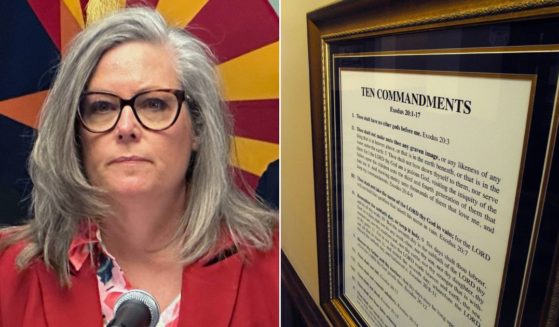Obama-Appointed Federal Judge Blocks Part of Trump's Prescription Drug Blueprint
Score one for opaqueness.
A federal judge appointed under the Obama administration has blocked a Trump administration rule that would have forced pharmaceutical companies to disclose the wholesale price of prescription drugs during television commercials, The New York Times reported.
In his ruling, Judge Amit P. Mehta of the United States District Court in the District of Columbia said that the Department of Health and Human Services had exceeded its authority when it made the rule earlier this year. It would have forced drug manufacturers to include information in every ad for medicine that cost more than $35 a month.
The rule was set to go into effect Tuesday, Reuters reported.
The administration had originally been sued by drug makers Merck, Eli Lilly and Amgen based on the fact that the rule violated the First Amendment and was beyond the scope of what the federal government could regulate.
The Department of Justice, meanwhile, argued that a 1985 Supreme Court decision gave the DOJ power to force advertisers to disclose certain factual, noncontroversial information to the public.
Judge Mehta didn’t rule on First Amendment grounds or the motives of Health and Human Services.
“Nor does it take any view on the wisdom of requiring drug companies to disclose prices,” Mehta said in his ruling.
“That policy very well could be an effective tool in halting the rising cost of prescription drugs. But no matter how vexing the problem of spiraling drug costs may be, HHS cannot do more than what Congress has authorized. The responsibility rests with Congress to act in the first instance.”
Secretary of HHS Alex Azar, who originally announced the rule in May, said that transparency might scare off consumers or embarrass drug companies keeping costs for certain drugs high.
President Donald Trump had highlighted the plan as part of his “blueprint” for keeping prescription drug costs down, telling a Roosevelt Room audience that it was “going to be something, I think, very special.”
“You may have heard about it. Maybe not,” the president said. “But it’s the beginning of a plan of transparency.”
However, the pharmaceutical industry disagreed, arguing that it would frighten patients away from taking needed medication and that the price wouldn’t be reflective of what consumers would end up paying with insurance.
“We are committed to working with stakeholders across the health care system to find better solutions for the larger issue, namely, lowering out-of-pocket costs for Americans who still struggle to pay for their medicines,” Lilly said in a statement after the ruling, adding that the company was pleased with it.
The Trump administration? Not so much.
“It is outrageous that an Obama-appointed judge sided with big pharma to keep high drug prices secret from the American people, leaving patients and families as the real victims,” White House spokesman Judd Deere said after the ruling.
“Although we are not surprised by the objections to transparency from certain special interests,” HHS spokeswoman Caitlin Oakley said, “putting drug prices in ads is a useful way to put patients in control and lower costs.”
She noted that the administration was consulting with the DOJ to consider its next step.
Hopefully, the next step would be Congress. Bipartisan legislation from GOP Sen. Charles Grassley of Iowa and Democrat Sen. Dick Durbin of Illinois passed the Senate in 2018 and was still being pursued as of May.
“Direct-to-consumer prescription drug advertisements are everywhere, and they tell you just about everything imaginable about the drug, other than its price,” the senators said in a news release after HHS’ decision.
“We believe American patients deserve transparency. When drug manufacturers flood the airwaves with these ads, our legislation — which passed in the Senate last year — would require common-sense price disclosure. We applaud HHS for taking this important step to help Americans struggling with skyrocketing drug costs. We will continue our legislative work to see this rule implemented.”
This should be a no-brainer. If we’re going to address the costly death spiral that the American health care system is in, one of the first things we need to embrace is transparency.
Starting with drug prices isn’t exactly going far enough, but it’s a start. Instead, Monday’s ruling was another victory for opacity.
If Congress wants to act, it can. It’s time for it to do so.
Truth and Accuracy
We are committed to truth and accuracy in all of our journalism. Read our editorial standards.












